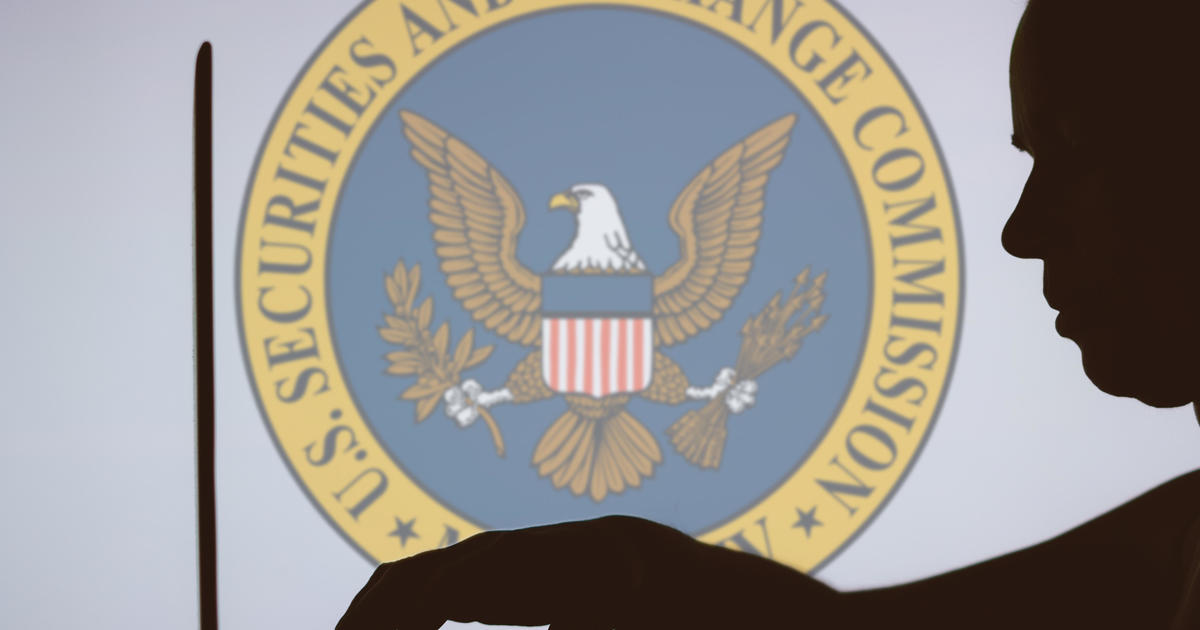SEC eyes greater regulation of stock trading after GameStop saga
The Securities and Exchange Commission is weighing new regulations on stock-trading apps after a frenzy in GameStop and other "meme stocks" earlier this year, according to a report issued by the commission Monday.
The agency found that the trading mania, in which hundreds of thousands of investors piled into the shares of struggling companies, severely tested the market system but didn't break it. Although the report stopped short of making recommendations, it outlined several areas for further study.
"The extreme volatility in meme stocks in January 2021 tested the capacity and resiliency of our securities markets in a way that few could have anticipated," securities regulators said. "At the same time, the trading in meme stocks during this time highlighted an important feature of United States securities markets in the 21st century: broad participation."
GameStop shares saw a massive price surge in January, rising from $39 to $347 in a single week as retail investors poured into the markets. Many traders were spurred by apps like Robinhood, which allow users to trade stock for free. As the trading devolved into a standoff between ordinary investors who were bidding up prices of the company and hedge funds that were short-selling GameStop, betting the price would fall, some brokerages halted trading in GameStop and dozens of other popular public companies, prompting consumer outrage, a number of lawsuits and a congressional hearing.
The report indicated the SEC could further scrutinize events that may cause a brokerage to restrict trading in a stock.
Trade apps in the crosshairs
Robinhood, which counts 13 million users, promised to "democratize" stock trading but has been criticized for manipulating would-be traders by gamifying aspects of buying and selling stocks in ways that appeal to young investors.
The brokerage has also taken heat for selling users' order information to larger trading firms that execute those transactions. (Many other brokerages also engage in the practice, knows as "payment for order flow.") More than 80% of Robinhood's revenue last year came from payments for order flow and rebates for cryptocurrency trades, the company revealed when it went public.
Monday's report suggests that greater regulation of stock-trading apps is coming, building on months of statements from SEC commissioners.
"Consideration should be given to whether game-like features and celebratory animations that are likely intended to create positive feedback from trading lead investors to trade more than they would otherwise," the report states.
Incentive to trade
It also takes a shot at the practice of apps like Robinhood selling trading information to larger firms, suggesting that the practice may have incentivized some brokerages to push customers to trade more often than they should.
"[P]ayment for order flow and the incentives it creates may cause broker-dealers to find novel ways to increase customer trading, including through the use of digital engagement practices," the report noted.
SEC Chair Gary Gensler has been critical of the practice of payment for order flow, telling Barron's in August that he favored an outright ban. In September, Gensler told the Senate banking committee that he wanted to crack down on the practice.
He questioned whether investors are getting the best execution on their trades when so many of those trades are getting routed to big trading firms instead of to exchanges like the Nasdaq or the New York Stock Exchange — a point reiterated in the report.
"I think we need to take a look at this whole market structure," he told senators.
"These platforms are now optimizing based upon our Fitbit, based upon our mobile apps, based upon how we drive our cars, they're maximizing based on all this data," he continued. While that could drive innovation, he said, "could it be a conflict as well if they're marketing to everybody differently?"
The SEC this summer issued a request for information on the digital practice of broker-dealers, flagging features like behavioral prompts, differential marketing and game-like features.
Monday's report also criticized the long-standing practices of off-exchange trading and short selling, noting that "improved reporting of short sales would allow regulators to better track" price dynamics. However — perhaps in a disappointment to some of the investors who bought GameStop shares to punish the financial elite — the SEC's staff said it doesn't believe hedge funds were broadly affected by investments in the company and other meme stocks.
The Associated Press contributed reporting.



